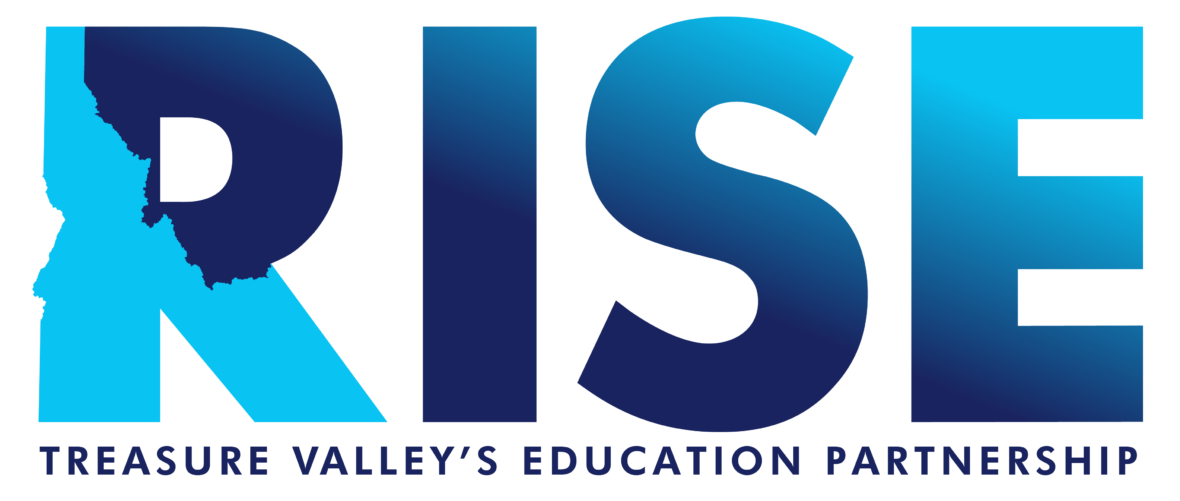In a recent op-ed published in Idaho Ed News, Idaho Freedom Foundation Executive Director Wayne Hoffman suggested several alternative uses for the state’s surplus. One of his recommendations should draw the attention of educators, parents, and the public at-large; that is, his reckless recommendation to use a portion of the surplus to “eliminate federal intervention in the education system.” He goes on to say that “It would mean an end to federal intervention in our classrooms, and that would benefit all Idaho schoolchildren, parents, and teachers.”
That over-simplified suggestion sells among the anti-government crowd, but is inherently myopic in terms of the consequences for the Idaho taxpayer and the state’s children.
The origins of federal financial support for education started with passage of the Elementary and Secondary Education Act in 1965. Signed by President Johnson and part of his “war on poverty”, the program distributes federal funds to local schools based on the percentage of low income families in the community. The goal is to assist schools in leveling the playing field for economically disadvantaged students, migrant students, homeless students, and English learners in reading, writing, and math in the hopes of creating more economic mobility and security for these children and their families. The law has subsequently been repeatedly reauthorized by Congress and signed by Presidents of both parties.
In 1975, President Ford signed the Individuals with Disabilities Education Act that transformed the expectations for and the ability of schools to serve students with disabilities, including preschool aged students with disabilities to ensure these children, who make up 10-12% of a public school’s enrollment, have the same educational opportunities as their non-disabled peers.
In 1946, President Truman signed the National School Lunch Act that provides nutritionally balanced, low-cost or no-cost lunches to children each school day. The School Breakfast Program was added by Congress in 1975.
This is what makes a public education in Idaho and the rest of the United States special, we take all children, regardless of their circumstances, and educate each and every one, and ensure that they receive adequate nutrition daily. It’s truly what sets us apart from other countries and other educational models; the effort to provide equal opportunity for everyone by providing equal access to everyone.
The state receives roughly $250 million annually from the federal government and distributes the funds to schools to pay for these programs. Our schools rely on these funds to pay the added expenses of providing teachers and paraeducators to work with disadvantaged and special needs children. The funds are also used to hire specialists like school psychologists, speech-language pathologists, physical and occupational therapists, and to purchase supplies and curriculum to address students’ unique learning needs, and more.
Is it reasonable to think we can eliminate $250 million in federal funds from Idaho’s schools and replace them with one-time state surplus funds? What happens in the years when there is no surplus? Will the legislature assume responsibility for these ongoing expenses and add $250 million to the annual state allocation to pay for programs the federal government already pays for? Should the state be allowed to reduce or eliminate any of these programs to save money? And what happens to the federal tax dollars collected from Idahoans to support these programs? Will we see a reduction in our federal taxes? Not likely. U.S. Department of Education would likely just redistribute these funds to other states to our students’ disadvantage.
Make no mistake, if the state were to decide against supporting these students, or fell short of protecting their constitutional right to equal protection under law, there would be lawsuits. It is a dystopian idea that somehow Idaho has no moral, ethical, or legal obligation to provide for our impoverished and disadvantaged children, as does every other state in this great country. Hoffman’s simplistic and extremist “solutions” do not benefit Idaho or the children we serve.
Co-written by former Idaho school superintendents Don Coberly, Geoffrey Thomas, Teresa Fabricius and Wil Overgaard.

